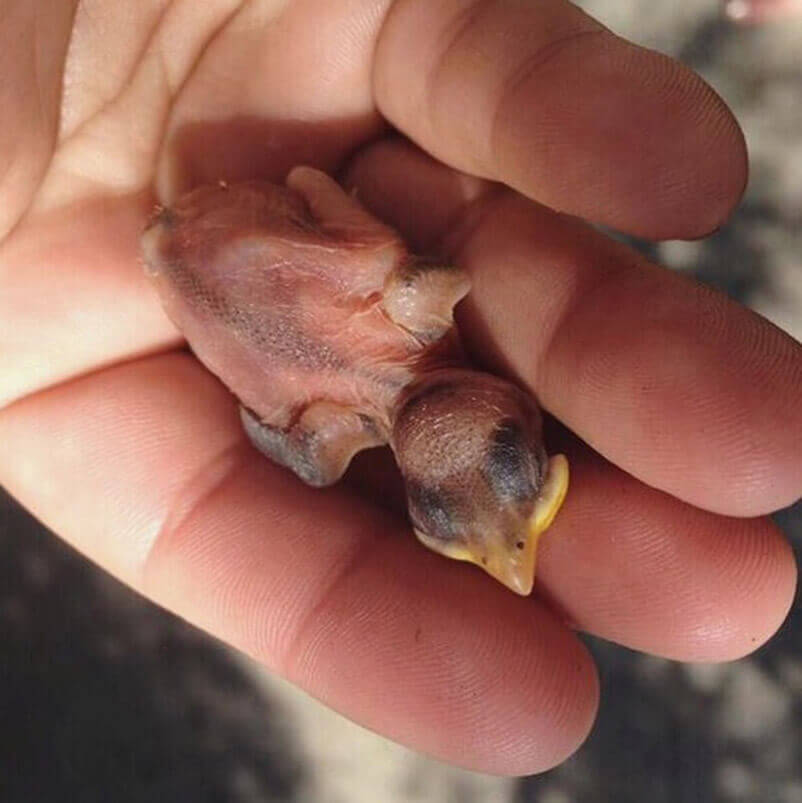
The Delicate Art of Caring for a Baby Bird
Introduction
Baby birds, with their fragile bodies and helpless demeanor, evoke a profound sense of responsibility and compassion. Whether you stumble upon an abandoned nestling or a fledgling struggling to survive, providing proper care is crucial for their well-being and survival. This comprehensive guide will equip you with the knowledge and techniques necessary to nurture a baby bird back to health and independence.
Assessing the Situation
Before embarking on the journey of caring for a baby bird, it is essential to assess the situation and determine the appropriate course of action.
- Is the Bird Injured? If the bird exhibits visible injuries, such as broken bones, lacerations, or bleeding, seek professional veterinary assistance immediately.
- Is the Bird Abandoned? If you find a nestling outside of its nest, it may have been abandoned. Observe the bird for a few hours to ensure that its parents are not nearby.
- Is the Bird a Fledgling? Fledglings are young birds that have left the nest but are not yet fully capable of flight. They may appear clumsy and disoriented.
Providing a Safe and Comfortable Environment
Creating a safe and comfortable environment is paramount for the well-being of a baby bird.
- Nest: Provide a small, enclosed space lined with soft materials, such as a shoebox or a basket. Place the nest in a warm, draft-free location.
- Temperature: Baby birds are highly susceptible to temperature fluctuations. Maintain a constant temperature of 90-95°F (32-35°C) for nestlings and 80-85°F (27-29°C) for fledglings.
- Humidity: Birds require a humid environment to prevent dehydration. Place a shallow dish of water near the nest or use a humidifier.
Feeding the Baby Bird
Feeding a baby bird requires specialized knowledge and techniques.
- Formula: Use a commercially available bird-specific formula, available at pet stores. Follow the instructions on the package carefully.
- Feeding Schedule: Nestlings require frequent feedings, every 15-30 minutes during the day. Fledglings can be fed less frequently, every 2-3 hours.
- Feeding Method: Use a syringe or a dropper to gently feed the bird. Avoid overfeeding, as this can lead to regurgitation.
Hygiene and Sanitation
Maintaining a clean and sanitary environment is crucial to prevent infections and diseases.
- Nest Cleaning: Clean the nest daily with a damp cloth. Remove any soiled materials or droppings.
- Bird Bathing: Baby birds do not require regular bathing. However, if the bird becomes soiled, gently wipe it down with a damp cloth.
- Disinfection: Disinfect the nest and feeding utensils regularly with a bird-safe disinfectant.
Rehabilitation and Release
The ultimate goal of caring for a baby bird is to rehabilitate it and return it to the wild.
- Rehabilitation: As the bird grows and develops, gradually reduce the frequency of feedings and provide opportunities for exercise.
- Flight Training: For fledglings, provide a safe and enclosed space where they can practice flying.
- Release: When the bird is fully feathered and capable of sustained flight, it is time to release it back into its natural habitat. Choose a location where there is an abundance of food and shelter.
Special Considerations
Caring for certain types of baby birds requires specific considerations.
- Hummingbirds: Hummingbirds have unique dietary needs and require a specialized nectar formula.
- Owls: Owls are nocturnal and require a diet of live prey.
- Waterfowl: Waterfowl, such as ducks and geese, require access to water for swimming and bathing.
Legal and Ethical Considerations
It is important to be aware of the legal and ethical considerations surrounding the care of baby birds.
- Permits: In some areas, it is illegal to possess or care for wild birds without a permit.
- Rehabilitation Centers: If you are unable to provide proper care for a baby bird, contact a licensed wildlife rehabilitation center.
- Release: It is illegal to release a non-native bird into the wild.
Conclusion
Caring for a baby bird is a rewarding but challenging endeavor that requires patience, dedication, and specialized knowledge. By following the guidelines outlined in this guide, you can provide the necessary care and support to help a baby bird thrive and return to its natural habitat. Remember, the ultimate goal is to ensure the well-being and independence of the bird.
